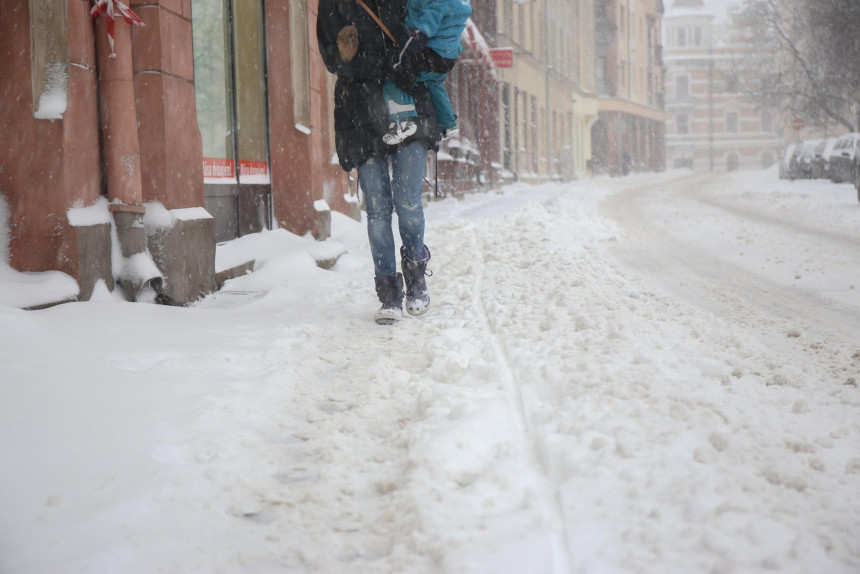Biggest street sweeper shortages are in Riga region, as those unwilling to vaccinate lost their jobs

You have to work all days of the week from 6 am to 9 pm for a salary of €350 before tax, reads one of the vacancy advertisements on the State Employment Agency's (SEA) job portal, which is looking for a street sweeper. This year, more than 400 vacancies for street sweepers were registered with the SEA. The job is not in demand - low salaries, not very attractive working conditions. In addition, this year, the need for a Covid-19 certificate also became a mandatory requirement for street sweepers, some of whom did not accept this government rule and quit or were fired, exacerbating the already acute shortage of street sweepers.
Current vacancies for street sweepers on the job portal of the SEA show that most employers are willing to pay €500 per month (gross). Some want a street sweeper to work 40 hours a week for this salary, while others are willing to pay €500 for part-time work.
The list of jobs to be done mainly includes, for example, clearing snow, picking up leaves and litter, and tending to greenery. Requirements for candidates - many require basic education, knowledge of the national language, but above all responsibility for the duties assigned. Every other advertisement also states: valid Covid-19 vaccination or recovery certificate required.
Can't find any street sweepers
There is a shortage of street sweepers across the country, with the number of adverts doubling in a year.
"There are currently 91 vacancies for 'street sweeper' in the State Employment Agency. Most are in the Riga region - 59," Signe Bierande, a spokesperson for the State Employment Agency, told LTV's "Dienas ziņas" program.
Rīgas namu pārvaldnieks (RNP) confirms that the company is short of about 50 street sweepers. Vacancies are reportedly available all the time.
Ronalds Neimanis, Chairman of the Board of Rīgas namu pārvaldnieks, says: "The Covid-19 pandemic has affected all of us, and it is the shortage of street sweepers that we feel most in this weather."
The shortage of street sweepers was already evident before the Covid-19 pandemic, with many homes experiencing long-term difficulties in finding a street sweeper. The situation has now become more complicated with the suspension of staff due to the mandatory national vaccination for public sector workers. In order to ensure continuity of service to customers, the areas to be cleaned have been revised for some buildings, as a result of which part-time sweepers are now employed full-time, in addition cleaning the areas of houses that do not have their own sweepers. Some of the buildings without sweepers have been taken over by dedicated replacement units, equipped with the necessary equipment and vehicles to clean a larger number of buildings. Some of the street sweepers have also been assigned additional helpers to assist in keeping tidy a larger area than before.
No new ones are coming
R.Neimanis admits that the street sweeper profession is becoming increasingly unpopular and "as generations change, keeping the grounds and common areas of houses tidy will become more and more of a challenge for managers, which is why we are looking more and more at the possibility of using technically well-equipped cleaning crews as part of our long-term development plan".
In the program "Dienas ziņas", RNP spokesperson Krists Leiškalns explains:
"Some of the vacancies arose after the vaccination requirement came into force. 27 workers were suspended from their duties." Leiškalns adds that shortages among street sweepers are also due to the fact that, especially in the winter season, street sweepers, like any other workers, fall ill.
RNP's advertisements currently state that a street sweeper-cleaner can earn between €550 and €1,000 before tax (the salary depends on the area to be cleaned).
*****
Be the first to read interesting news from Latvia and the world by joining our Telegram and Signal channels.
